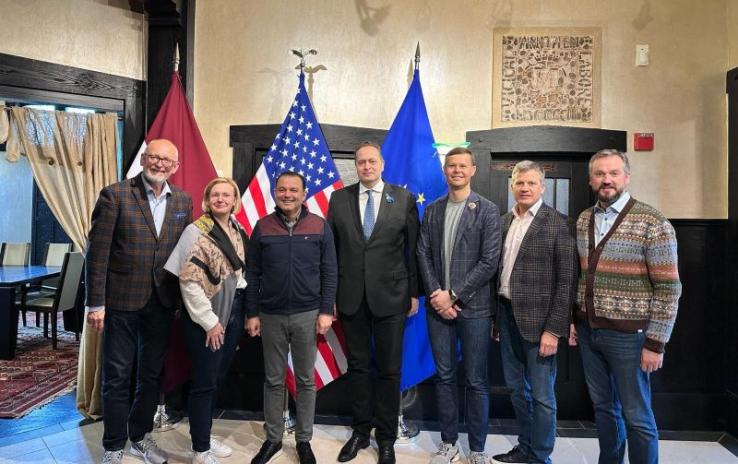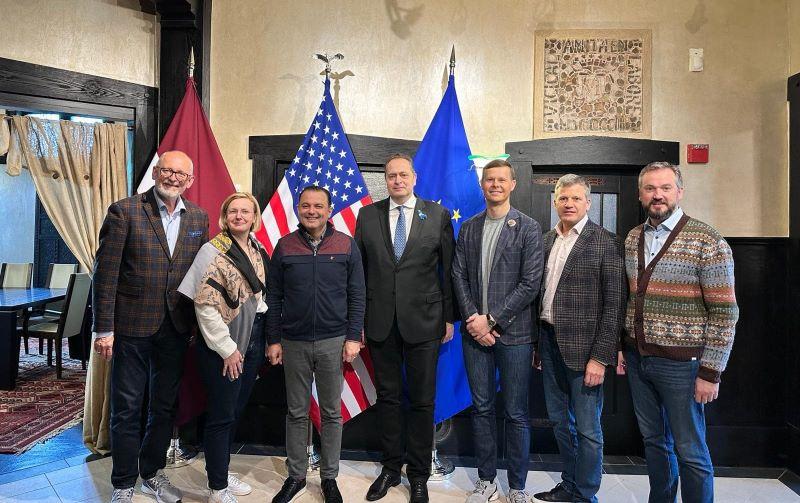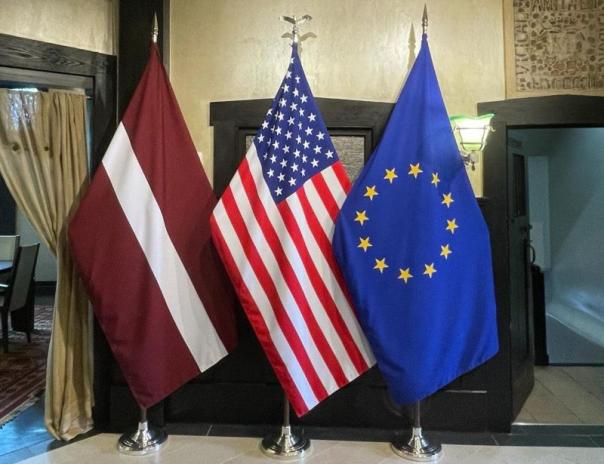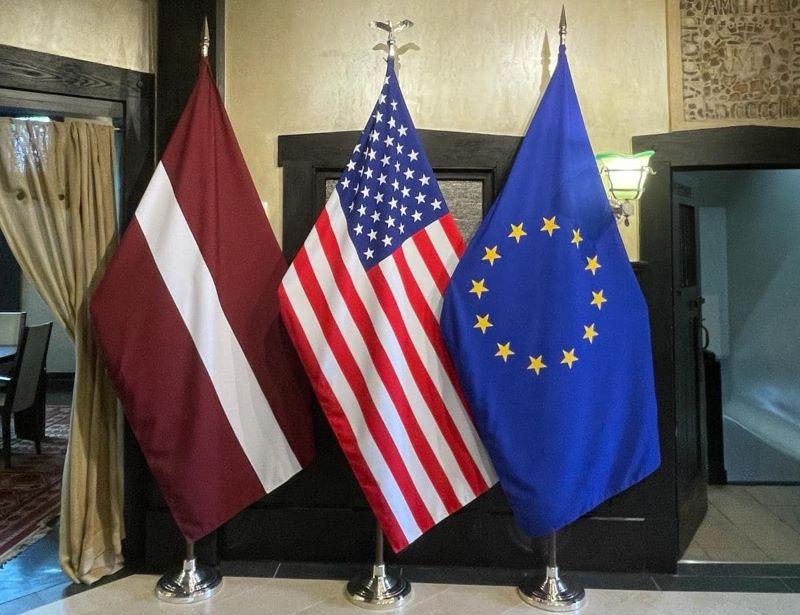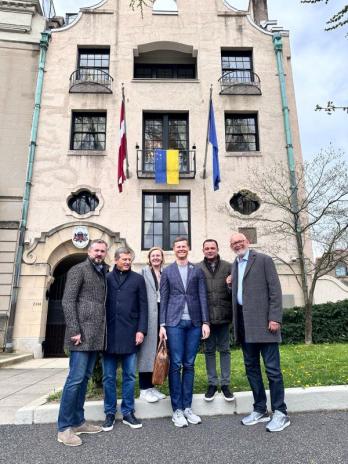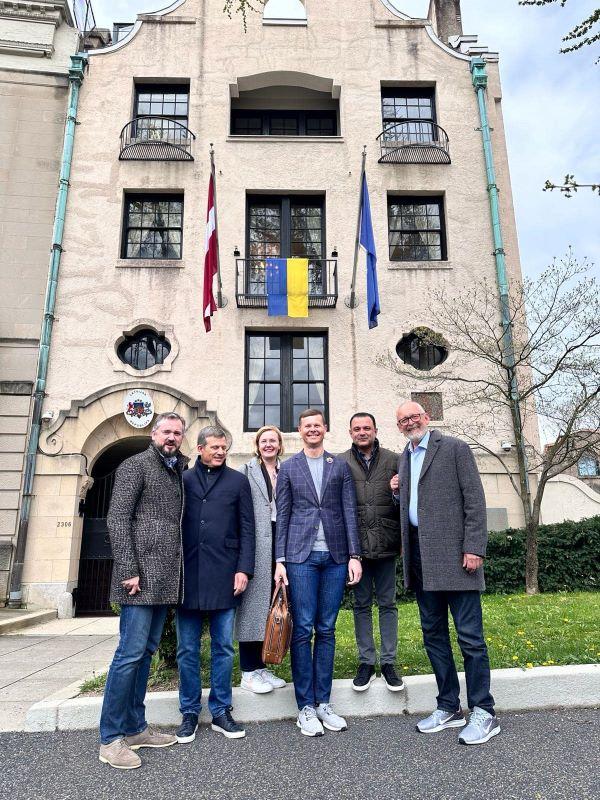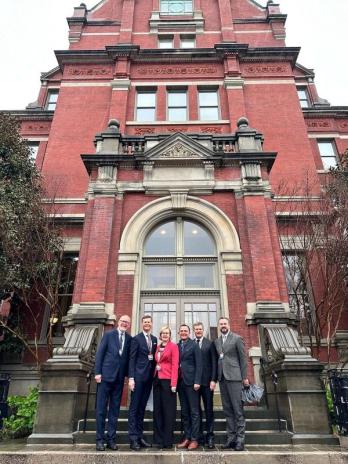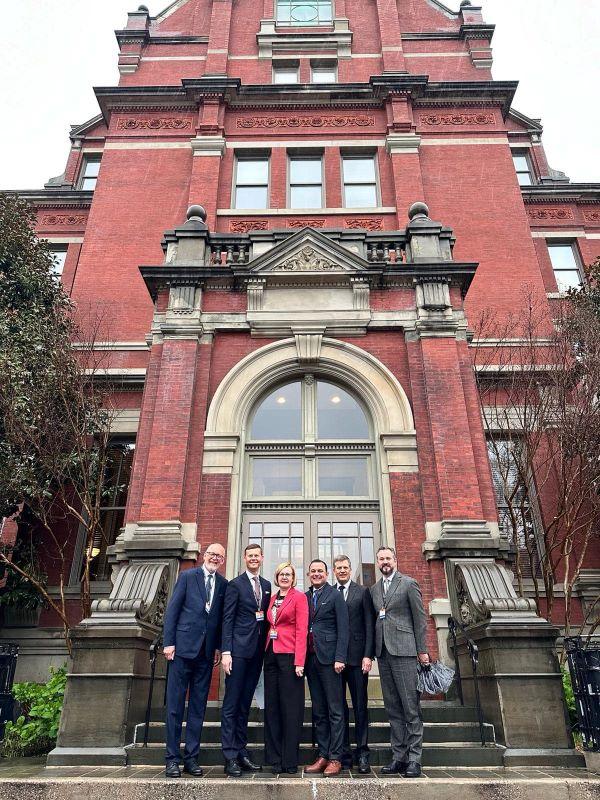RSU management agrees on cooperation with Johns Hopkins Hospital during a work visit to the US
On 2 and 3 April, the Minister for Health Hosams Abu Meri, the management of Riga East Clinical University Hospital and Rīga Stradiņš University (RSU) paid a work visit to Johns Hopkins Hospital. During the visit, an agreement was reached with the hospital on cooperation and exchange of experience in the digitisation of inpatient data, improvement of the care system and the use of simulation technologies in the training process.
Rector Prof. Aigars Pētersons and Vice-Rector for Administration and Development Toms Baumanis were the two representatives from RSU who participated in the visit.
The visit included a meeting with the President of the Hospital Assoc. Prof. Redonda Miller, CEO, Prof. Theodore DeWeese, and other representatives of the hospital's administration, as well as department heads and specialists in quality management and patient safety matters.
‘The visit to the Johns Hopkins Hospital Command Centre provided an excellent insight into the hospital’s information system, which underpins the efficient operation of the hospital in terms of patient care and cost-effectiveness. Latvia should also move towards a health data information system like this, that serves not only scientific but practical purposes, ensuring transparent, high-quality, and cost-effective hospitalisation that is safe for patients. The benefits of artificial intelligence in data classification and support are evident in every professional's experience,’ said the Minister for Health Hosams Abu Meri.
Participants also discussed the introduction of value-based healthcare, which initially involves a shift in perceptions and attitudes, but is absolutely necessary to achieve excellence in global healthcare.
During the visit, the Latvian delegation learned about the Johns Hopkins Hospital's experience in providing patient-centred healthcare. They learned about creating patient experience, which was highly appreciated as it promotes patients' active participation not only in preparing for and receiving care, but also in post-service assessment. This practice not only improves the quality of services, makes them patient-centred and value-based, but also saves resources in healthcare, which can be further channelled into developing other innovations.
Primary health care issues were also discussed during the visit. The representatives from the US stressed that primary health care faces human resource challenges similar to those in Latvia and other parts of the world. Because of this, a number of specialists are setting up practices that share medical and support staff, as well as administrative resources, skills in patient management, examination and telemedicine capabilities, thus ensuring well-considered care for all patients. As a result, the patient burden on hospitals and emergency services is reduced. Funding is not everything; much depends on how work is organised, shared values and a focus on the patient as the core value.
After learning about issues concerning data collection and digitisation in hospitals, the Latvian delegates concluded that the Ministry's plan to establish a Competence Centre for Healthcare Data has a similar goal. Whatever data processing system is used, the most important thing is that patient data ends up in one register where other professionals can find what they need. This requires a coordinated approach that not only supports the data storage and processing process, but also takes care of innovation, implements AI development projects and provides a user-friendly service for all users.
About Johns Hopkins Medicine
Johns Hopkins Medicine is a non-profit organisation with a 125-year long history, known for its innovative research, education, and healthcare provision to patients worldwide. Johns Hopkins Medicine integrates the Johns Hopkins University School of Medicine and the Johns Hopkins Hospital. Several national ranking agencies recognise the hospital as one of the best in America. Johns Hopkins Medicine employs over 40,000 specialists.
Related news
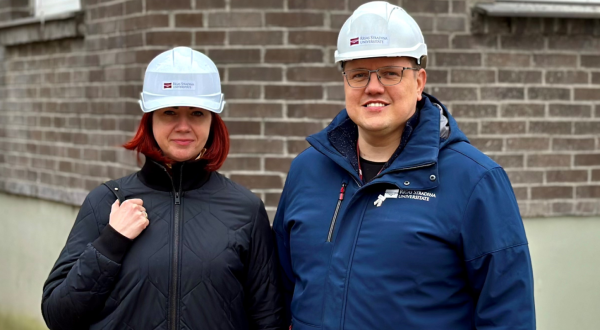 RSU is growing and developing: major reconstruction underway in the main buildingDevelopment, For RSU Employees, For Students
RSU is growing and developing: major reconstruction underway in the main buildingDevelopment, For RSU Employees, For Students